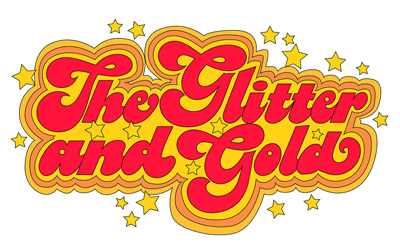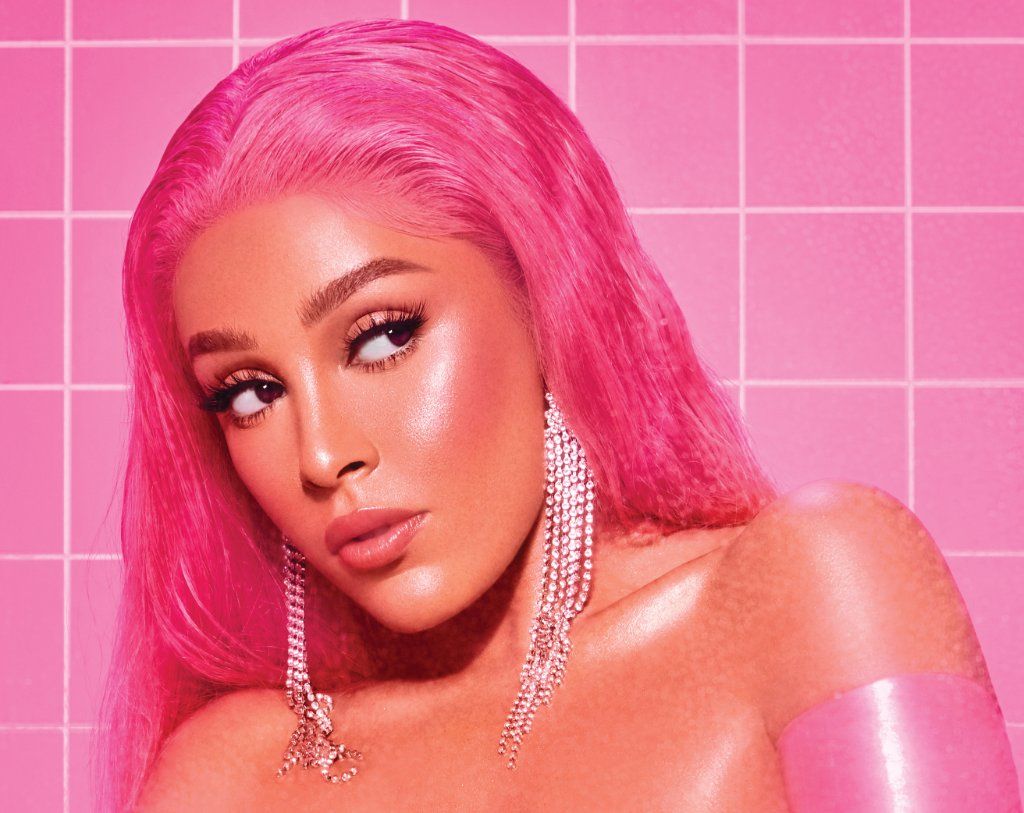Kesha was a wild and rule-breaking pop star. Her glittery album covers dominated iPods the world over in 2010. Dropping out of her Nashville high school at age 18 she relocated to Los Angeles to become a star. Here she paired up with hit record producer Dr Luke. And, following their chart-topping party anthem ‘Tik Tok’, became an international pop sensation. Her songs embodied the party-ready attitude of the times. Yet the life behind the scenes was far from rosy. There was more this pop star’s story than sparkling makeup and a bottle of Jack.
Cannibal Instinct
‘We R Who We R’ was the lead single from Kesha’s 2010 EP Cannibal. The extended-player was a companion to Kesha’s blockbuster debut album Animal. “This year has been carnivorous and life-changing,” Kesha explained in a press statement accompanying Cannibal‘s release.“ I have my rowdy, gorgeous fans to thank for taking me on the ride of a lifetime.” As with Animal, Kesha’s Cannibal material encouraged listeners to ignore the negative judgements and be themselves.
‘We R Who We R’ was a Pride Anthem
Kesha released the song after a series of gay teens suicides had broken out across the US. The string of highly publicised deaths began when university student Tyler Clementi jumped to his death after a recording of the 18-year-old having a sexual encounter leaked online. Clementi’s death was widely publicised. In the three weeks following a national outpouring of grief, four more gay teens would take their lives.
“I was really affected by the suicides that have been happening,” a distraught Kesha told Rolling Stone at the time of the single’s release. “I have absolutely no idea how these kids felt… Just know that things do get better and you need to celebrate who you are.”
The statement clued the public at large to Kesha’s involvement in the LGBT+ community. Shortly after the song’s release, Kesha recorded a special video message for the It Gets Better Project, a non-profit created to inspire and advocate for LGBTQ+ youth. Her reputation as an LGBTQ+ ally would grow in the coming years through her own sexuality would remain a secret for another three years. “I don’t love just men,” she revealed to Seventeen Magazine in 2013.
Kesha also wished to act as a role model more generally. “Young people need a role model to tell them they’re beautiful exactly the way they are and that they don’t have to be apologetic about themselves,” she told Spin 2010. “So I wanted to write a super-positive anthem.”

Songs of Survival
As a woman and pop star Ke$ha faced a double standard. Older music critics were sceptical she had anything meaningful to say. In his review of the song, The New York Times journalist Alex Hawgood described ‘We R Who We R’ as another generic dance hit. Yet there was more going on beneath the surface of ‘We R Who We R’ than immediately apparent.
Kesha’s sentiment reflected a growing cultural sympathy for LGBTI+ rights and same-sex relationships. The public at large was more supportive. Many praised Kesha, and other artists like Lady Gaga, Katy Perry, and Taylor Swift for their support for the LGBTQ+ community. Following the song’s release, several openly gay YouTubers would release their own viral covers, parodies and karaoke versions of the song. “The lyrics obviously spoke to us,” one YouTuber shared. “What these artists are doing means the world to the gay community.”
Kesha’s ‘We R Who We R’ Video
Kesha, of course, had a video of her own. Shot over a 48-hour period in downtown Los Angeles, ‘We R Who We R’ was directed by hip hop director Hype Williams. Viewers saw Kesha in a sparkly one-piece leotard made of shards of broken glass, chains, and ripped stockings. There are drag races, explosions, studded eyebrows and glittery eye makeup. Kesha told MTV News the video was different from the other clips she had produced. She wanted to show a sexier side of herself.
During the bridge of the song, Kesha is on top of a building and the music cuts out for a few seconds as she falls backwards from the rooftop. Her fall is saved, caught by the party-goers, no doubt a subtle nod to Tyler Clementi’s suicide. Kesha takes a deep breath, then falls backwards, not to be met by ground, but supported.
The public responded. The song was an international Top 10 hit. On May 5th, 2019, the music video was officially certified by Vevo as having reached more than 100,000,000 views. This made the song Kesha’s fourth video as a solo artist to break the record.

Continued LGBTQ+ Advocacy
Six years after the release of ‘We R Who We R’, Kesha received the Human Rights Campaign’s Visibility Award in 2016. The award honoured Kesha’s advocacy. In her acceptance speech, Kesha recounted how feeling like a misfit growing up led her to find a place within the LGBTQ+ community.
“Although back then we didn’t know what LGBT meant,” she shared, “we just knew that we were bullied for being ourselves, shamed for being different and encouraged for hiding the things that make us unique. My message today is don’t be afraid to speak up against any injustice you experience. Don’t let people scare or shame you into changing the things about you that make you unique.”
In 2018, Kesha contributed her own original composition to charity album Universal Love. The record included same-sex anthems from Bob Dylan and St. Vincent. In the video for the song Kesha acted as the celebrating a real-life same-sex wedding during the music video for her song ‘I Need A Woman To Love‘.
Kesha v. Dr Luke
As Kesha fought for LGBTI+ rights her own battle for freedom was unfolding behind the scenes. While working on second album Warrior her hit-making partnership with Dr. Luke became strained. In 2014, Kesha sued to be released from her six-album recording contract with Luke. As the series of trials proceeded a number of disturbing allegations came to light. Dr. Luke, Kesha maintained, had verbally and sexually abused her over a course of many years.
Her former mentor denied the charges. He and his record label Kemosabe were not without powerful allies. Kemosabe’s parent label Sony had invested millions in launching Kesha’s career. Her opponents were unwilling to let her go.
In 2016 a court settled the matter in Dr. Luke’s favour. This did little to displace an outpouring of public support. With the #METOO movement only a year away, many felt Kesha was the victim of a system biased in favour of powerful men. Kesha herself was devastated. Nevertheless, she was bolstered by the public’s support. She would later draw on these experiences in writing acclaimed 2017 album Rainbow.

‘We R Who We R’ Gave Fans Something to Believe In
It’s been about a decade since Kesha awoke her listener’s wild sides. Back in 2010, few recognised ‘We R Who We R’ as a step toward a more mature and socially conscious generation of pop stars. What is more, a decade has revealed that there is more to Kesha than initially supposed. She was attuned to changing times and like countless other women, she was struggling to free herself from controlling men. ‘We R Who We R’ we tapped into a near-universal desire for freedom, recognition and acceptance.
Only with the release of Rainbow and the Grammy-nominated ‘Praying‘ did a more complete picture of Kesha’s early career come to light. While this adds context it does little to detract from the song’s initial message to be oneself. As obvious of a statement as it may seem, ‘We R Who We R’ had a profound effect on the lives of many thousands of Kesha’s fans.
Kesha herself may have said it best. “I never could have imagined how much impact my music could have on people,” she told The New York Times in January 2020. “I realized that through pop music, I have the opportunity to stand up for something I believe in.”
‘We R Who We R’ Peak Chart Positions
US/Billboard: #1 (20 weeks on chart)
Australia/ARIA: #1 (20 weeks on chart)
UK/Official Charts Company: #1 (19 weeks on chart)
Pop rap
Dated
Dr. Luke










Party Anthem
Unlikely LGBT+icon
A positive message